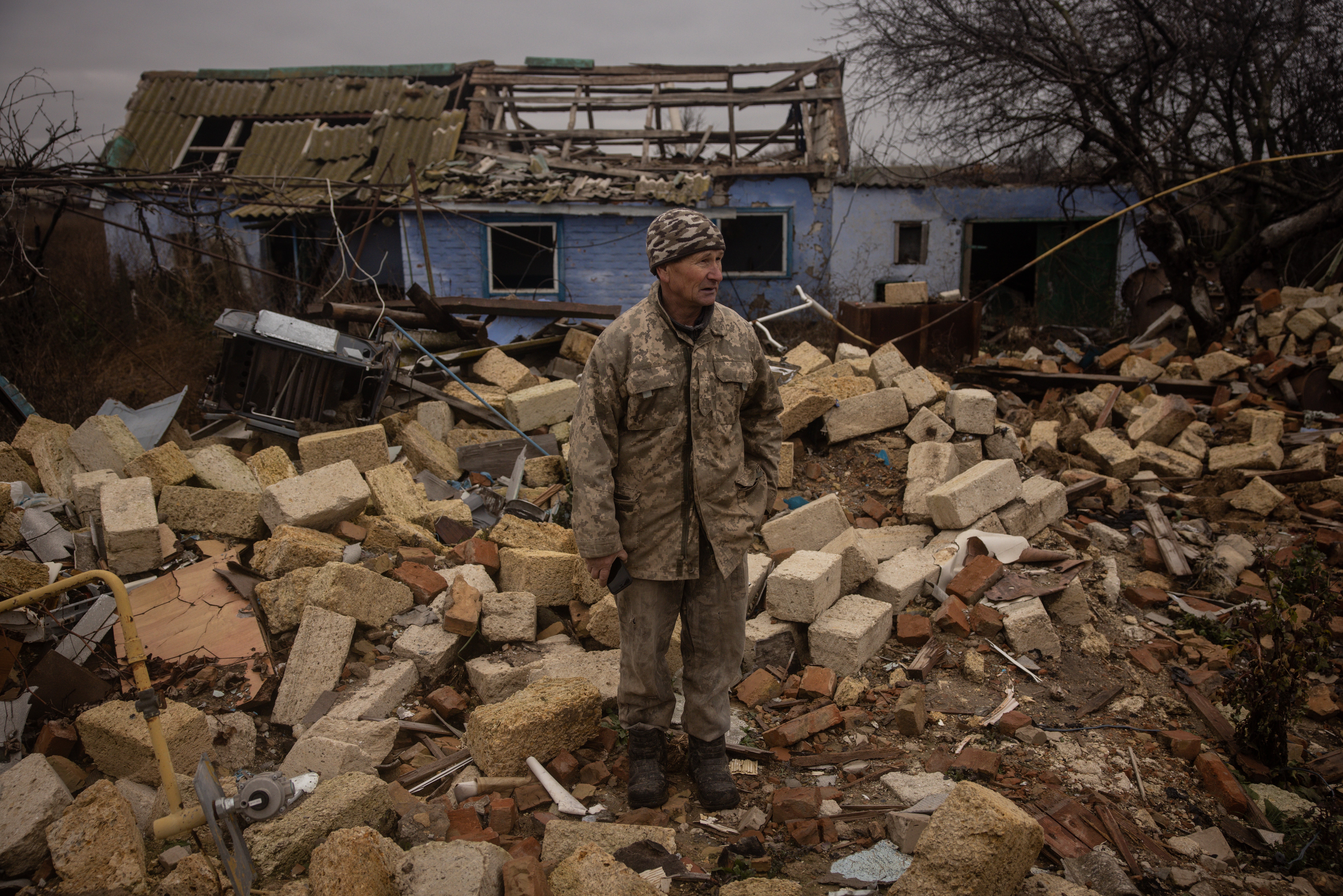Putin ‘has lost nearly 160 generals and colonels among 1,500 officers’ since Russia invaded Ukraine
Death rate reported to have been particularly high as Moscow grappled with logistics and communications issues during first weeks of invasion

Vladimir Putin has lost more than 1,500 military officers – including nearly 160 generals and colonels – since Russia invaded Ukraine nine months ago, according to an open-source tally which echoes the findings of other independent investigations.
The Kremlin has been guarded in its public admissions regarding the scale of millitary losses in Ukraine, with the most recent official figure of 5,397 – given in September by defence minister Sergei Shoigu – sitting significantly lower than Western estimates.
In stark contrast, the United States’ top general Mark Milley suggested earlier this month, as the Russians retreated from Kherson, that Moscow and Kyiv’s forces had each sustained upwards of 100,000 casualties since the war began.
“You’re looking at well over 100,000 Russian soldiers killed and wounded. Same thing probably on the Ukrainian side. A lot of human suffering,” Mr Milley said, estimating that some 40,000 Ukrainian civilians had also lost their lives, with a further 15 to 30 million displaced.
At first glance, the US estimate of Russian losses appears similar to that given on Sunday by the General Staff of the Armed Forces of Ukraine, which claimed that 87,310 Russian troops have been killed – including 600 in the four days prior.
However, analysis by the the US Centre for Naval Analysis suggests that, for every Russian soldier that dies during the war in Ukraine, between three to four of their compatriots are wounded on the battefield – indicating a significant difference in the death tolls proferred by Kyiv and Washington.
In addition to official channels, open-source investigators have also been closely following the war in Ukraine, scouring social media and other publicly-available information to follow and piece together evidence of developments on the battlefield.
According to one such tally, compiled by a Twitter account with the handle KilledInUkraine, which frequently includes links to Russian articles and social media posts corroborating the Russian casualties added to its public list, Moscow has now lost more than 1,500 officers.
The list of alleged Russian losses, cited on Monday by Ukrainian colonel Anatoly ‘Stirlitz’ Stefan, includes more than 150 colonels and lieutenant colonels, 205 majors, 296 captains and nearly 500 senior lieutenants – in descending order of rank.

At the heighest rank, it also includes eight major generals and two lieutenant generals, but alleges that only five of those deaths – all belonging to those holding the first title – have been confirmed. Several of these high-profile losses have been widely reported in international media.
The findings bear striking resemblance to an independent investigation published last week by BBC Russia and Russian outlet Mediazona, which counted the deaths of some 9,311 Russian soldiers, based on confirmed sources which name the deceased – 1,449 of whom are alleged to be Russian officers.
Their joint investigation found that most of the senior officers listed died in the first two months of Mr Putin’s war – when the Russian military suffered particularly badly with poor communications and logistics.
But the outlets reported that the casualty rate is still very high among junior officers, many of them young and inexperienced, and who are dying at a rate several times that of their subordinates.
The BBC and Mediazona estimate that their list accounts for a mere 40 to 60 per cent of the Russian troops actually buried in Russia, based on an assessment of the situation at some 600 cemeteries, and suggest that their findings support the 100,000 figure given recently by Mr Milley in New York.
Forced into an embarrasing retreat from Kherson, Mr Putin’s forces have intensified their attacks on Ukrainian energy infrastructure in recent weeks, as the grinding battle of attrition on the frontlines continues.
The Institute for the Study of War think-tank suggested on Saturday that operations on both sides in “critical frontline areas” in Ukraine’s south and east had been “bogged down” by heavy rain and mud.
But the US-based analysts suggested that the pace of fighting could again increase as plunging temperatures cause the ground to freeze, increasing mobility.
Ahead of Russian Mother’s Day on Sunday, Mr Putin met with the mothers of soldiers who had been fighting in Ukraine, telling them that he and the entire Russian leadership shared their suffering.
Activists, however, reportedly accused the Kremlin of cherry-picking mothers to appear as part of the televised event, which comes amid increasing domestic unease at Mr Putin’s war in the wake of his “partial mobilisation” of 300,000 reservists, which prompted a mass exodus of draft-age men.





Join our commenting forum
Join thought-provoking conversations, follow other Independent readers and see their replies
Comments